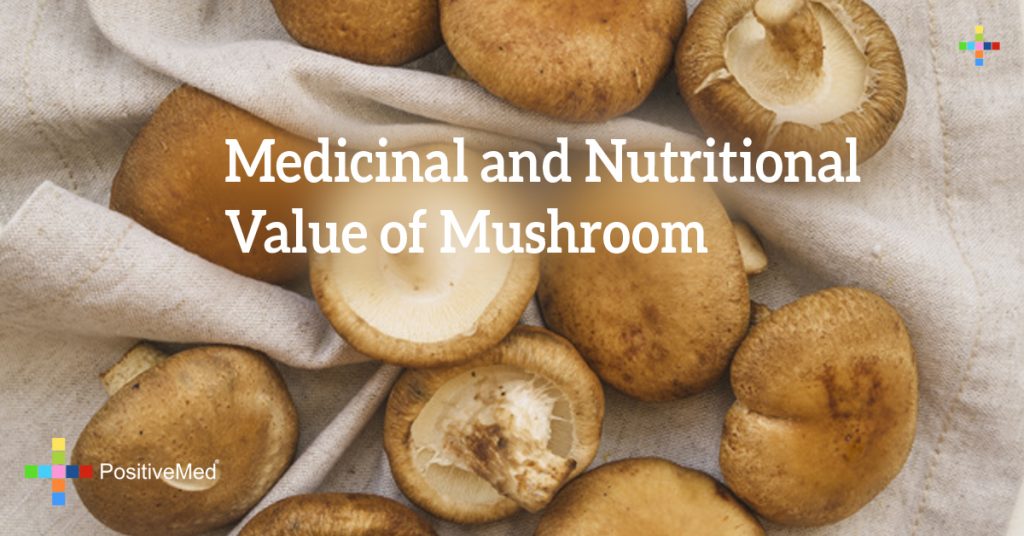
medicinal and nutritional value of mushroom
By PositiveMed-Team
Edited By Stephanie Dawson
In almost every culture mushrooms are known and they have been used for centuries as stimulants, food, hallucinogen, rituals, or even as a death weapon. In this article we will dedicate to speak about the nutritional and medicine properties of edible mushrooms, excluding toxic, or psychoactive mushrooms, which have another important properties for human being but aren’t the scope of the current article.
Mushrooms are probiotics, this means that they will help the organism to fight deseases, restoring wellness and natural equilibrium, making our immune system to work correctly, eliminating external agents that could cause a disequilibrium in our health. Also mushrooms are delicious and a very versatile dish that can be used in almost any culinary style. The frequent consumption of some kind of mushrooms, will beneficiate our health and overall wellness, and it will help preventing diseases that are product of sedentary lifestyles such as diabetes, hypertension or obesity.
The most common mushrooms sold in supermarkets and farms are portobello, white button, crimini, and oyster.
Nutritional Properties:
They are an excellent source of protein, in some regions they are known as vegetable meat for their high protein content. They contain all the essential amino acids needed for your body. The percentage of protein in dry mushrooms could be between 10% and 30% of the total mushroom weight.
They have a high concentration of carbohydrates at 57% and 14% raw fiber. Most of those carbohydrates are complex sugars that will help you regulate insulin and sugar levels because they are low-glycemic sugars.

Lipids:
Mushroom contains almost no fat or lipids at all, 3%-5% of total weight. Additionally these fats are beneficial to the body that will aid in weight reduction and decrease cholesterol levels and are easy to digest.
Antitumor properties
–
Current research shows that some varieties of edible mushrooms contain important quantities of polysaccharides identified as antitumor agents.
Antiviral effects
–
The same mechanisms that stimulate the immune system fight viral and bacterial agents and can be helpful in autoimmune conditions.
Anti-inflammatory–
Mushrooms have anti-inflammatory properties, research shows that some amino acids in edible mushrooms have excellent anti-fungal and antibiotic capacity.
Cholesterol–
It has been demonstrated in laboratory tests that frequent consumption of mushrooms diminishes the level of fats in the blood and will help control bad cholesterol in the liver. It strengthens the heart by not allowing the heart wall to enlarge and thicken giving them preventive properties for cardiovascular diseases. They will help lower cholesterol, triglycerides, and negative fats.
Liver protector–
In laboratory tests rats that were fed dehydrated mushrooms and a diet rich in fats for six months showed better outcomes at lowering cholesterol and triglycerides by 65%-80% compared to those that were not.
Anti-hypertensive effect–
Besides lowering cholesterol they can decrease blood pressure, a diet rich in potassium decreases hypertension, almost all edible mushroom are rich in this mineral.





